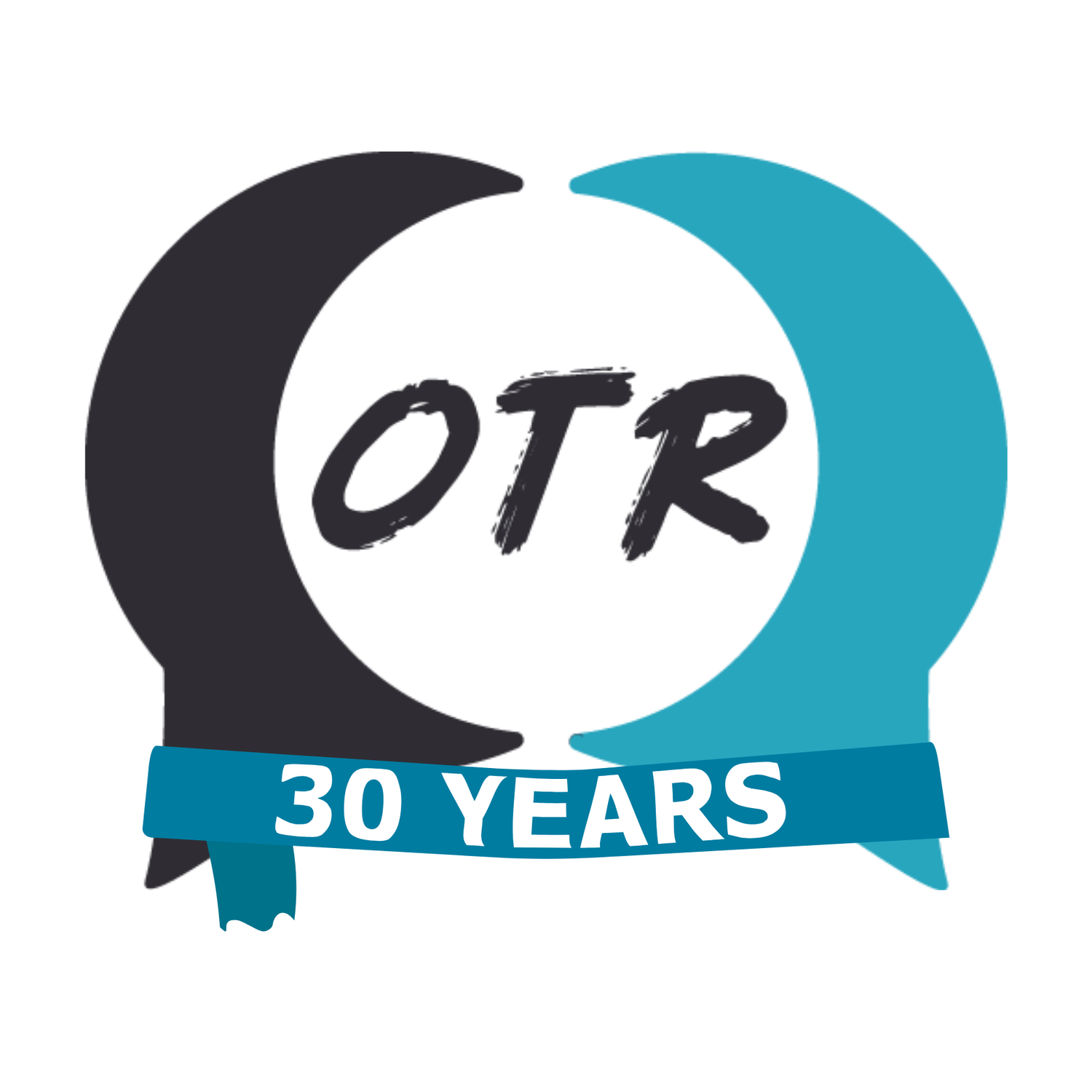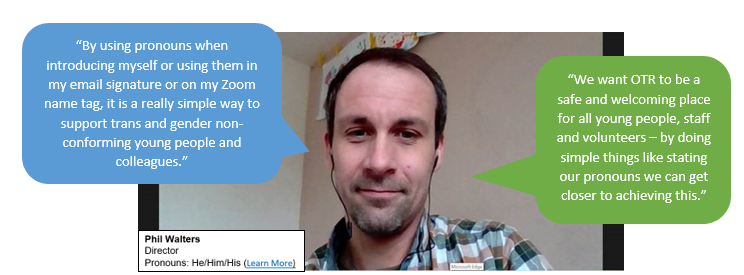The importance of Pronouns
I talked to young people and staff at OTR about pronouns- here’s what I found out…
Assistant LGBT+ Youth Worker Jack (he/him) turns detective on pronouns
At Off the Record, pronouns are everywhere! You will see them on our Zoom calls, in the signature of staff emails, and when we tell you our names, we will also tell you our pronouns. But why do we do this and what are pronouns exactly? Kitted-out in rainbow attire and a deerstalker hat, I went to investigate pronouns and interview some of Off the Record’s young people and staff.
So, what is a pronoun?
A pronoun is a word we use to talk about someone instead of using their name. For example, “Harriet bought the young people at Space pizza, she ordered two margaritas.” In this sentence the word “she” means “Harriet”. We use pronouns all the time and I have discovered that they can be important- especially for transgender and gender non-conforming people.
Sometimes it isn’t easy to guess which pronoun someone uses. It may be hard to tell someone’s gender, or they may look like a boy, but their gender is actually female or non-binary. By telling people our pronouns we make sure they know how to talk about us. Even if people can easily guess your pronouns, it can be helpful to tell them anyway. Our LGBT+ Team Lead Harriet explains why…
Talking to some of the young people at Off the Record, I learnt that they had similar opinions to our staff. Here’s what some people said about the importance of including pronouns…
*passing is when a transgender person is perceived as cisgender instead of the gender they were assigned at birth. For example, a transgender man may be perceived as a cisgender man.
Is it correct to use “they” for one person? What about “ze”?
What most people don’t know is that “they” has been used in English to refer to a singular person since the 1300’s! It has been used to talk about someone with an unknown gender or whose gender is not important in the context of the conversation. “They” is also used by some people who are non-binary (a gender which is not “male” or “female”) or gender non-conforming. In fact, using “they” to talk about a non-binary or gender non-conforming person is now so popular that the Merriam-Webster Dictionary made it their 2019 Word of the Year!
Many different gender-neutral pronouns in English have been suggested and gone in and out of fashion since the late 1700’s. While many never became popular enough for everyone to start using, we can see that people have noticed a need for gender-neutral pronouns for a long time. One LGBT+ Space member reflects on the need for gender-neutral pronouns:
An example of one gender-neutral pronoun that was invented is “ze”. It was invented in 1846 and is still used by some people today! Other pronouns that some people use include “xe/xem”, “fae/faer” and “sie/hir”.
Both Off the Record’s young people and staff had some insightful opinions on pronouns. I have discovered that staff and volunteers will state their pronouns to help transgender and gender non-conforming people feel more comfortable and included within the charity.




